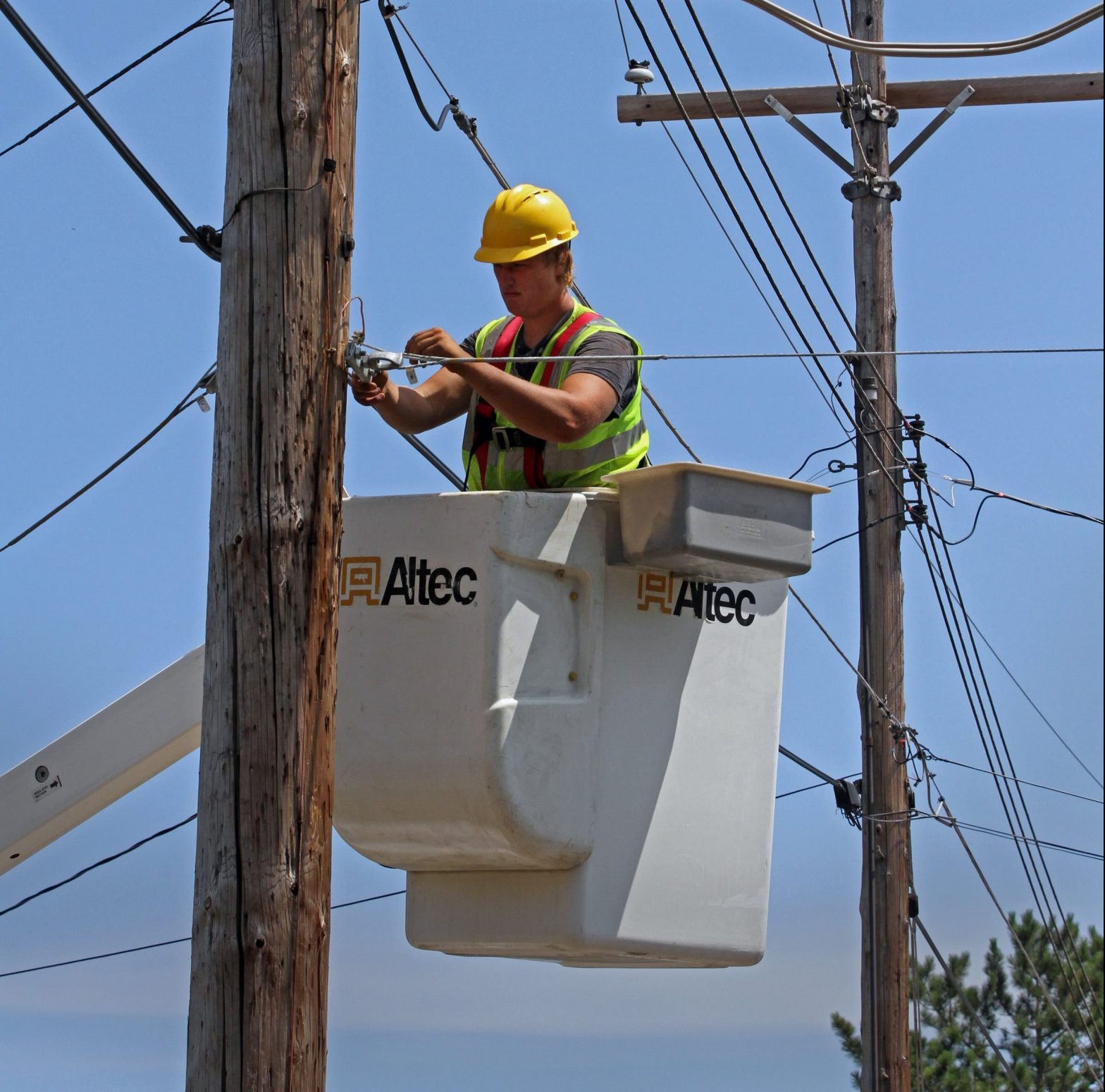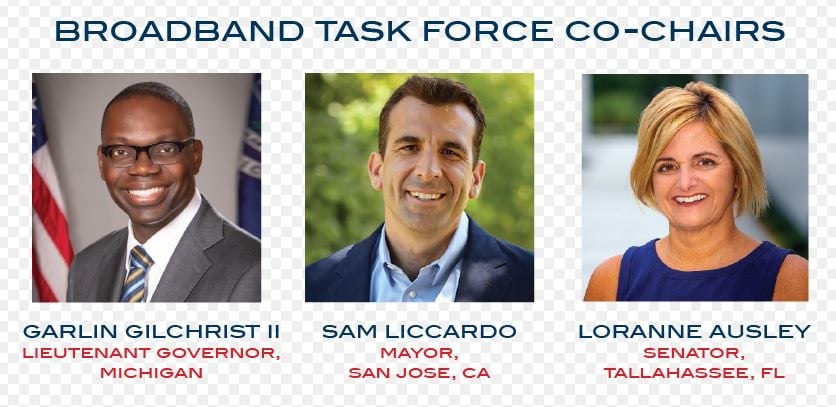NewDEAL Forum Launches Broadband Task Force

The NewDEAL Forum launched a Broadband Task Force on Tuesday to identify major obstacles limiting access to high-speed internet, develop state and local solutions, and advocate for a strong federal-state-local partnership.
Chaired by Michigan Lt. Gov. Garlin Gilchrist, Florida State Sen. Loranne Ausley, and San Jose, Calif., Mayor Sam Liccardo, the group will bring together state and local officials with policy experts and partners from the non-profit and private sectors.
Participants will include leaders from the Forum’s sister organization, the NewDEAL, a network of 180 of the most innovative elected officials across the country. Gilchrist, Ausley, and Liccardo are among its members.
“The COVID-19 pandemic has underscored distressing inequities created by the lack of equitable access to the internet and has generated an overdue sense of urgency for public policies to close the gap,” said Gilchrist, who has been tapped by Gov. Gretchen Whitmer to help lead the state’s work to strengthen and grow broadband access, adoption, and use across Michigan.
“We cannot afford to let this moment pass without dramatic action. It’s heartening to see so many federal, state, and local officials working together to launch unprecedented programs like the Emergency Broadband Benefit and try innovative approaches that will help ensure that every home and business has a reliable, affordable high-speed internet connection that meets their needs. This Task Force will encourage coordination and help us learn from one another’s experiences,” Gilchrist said.

Equity will be a cornerstone of the task force’s work, recognizing the disturbingly high lack of internet access among certain communities, including for people of color. A recent study by the Alliance for Excellent Education found one in three Black, Latino, and American Indian/Alaska Native students do not have high-speed home internet access.
“In Florida and across the country, we have never seen more momentum to make high-quality, high-speed internet accessible and affordable for all Americans,” said Ausley, whose proposal to fund a statewide broadband mapping initiative was recently signed into law. “Now is the time to take everything we have learned during this pandemic, share lessons learned, and leverage resources to finally close the digital divide in our urban and rural communities.”
“We have built public-private partnerships that will be delivering Wi-Fi-based broadband to 300,000 San Jose residents, living in our least affluent neighborhoods, by late 2022,“ said Liccardo, whose Digital Inclusion Fund has become a national model on closing the digital divide. “I look forward to sharing what we’ve learned and harnessing the momentum that we have nationwide to make the promises of broadband available to all.”
In an initial meeting before the official launch this week, the task force addressed opportunities to improve high-speed internet access using funds from the American Rescue Plan. Other topics included ways for state and local officials to best support and complement initiatives by the Federal Communications Commission to improve broadband mapping and administer the Emergency Broadband Benefits Program that was created to subsidize internet access for low-income Americans.
“From creating good jobs to improving education to strengthening the social safety net, addressing the biggest challenges of the new economy means ensuring everyone has access to high-speed internet,” said NewDEAL Forum CEO Debbie Cox Bultan. “Many state and local leaders are rising to this challenge and now they have partners at the head of the FCC and in the White House providing national leadership to accelerate their progress. At this moment of enormous opportunity, the Broadband Task Force will provide a platform for developing and sharing the best steps that state and local governments can take among officials who can lead their implementation across the country.”
The task force plans to convene monthly for in-depth conversations on closing the digital divide and to highlight effective efforts in communities across the country. The co-chairs will release guidance for state and local leaders based on these discussions and the work of participating public officials and partners.























